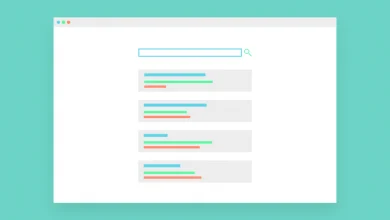Bloating & Gas: Common Causes and Treatment

There’s a familiar frustration that creeps in after a hearty meal, the tightness around your stomach, the odd discomfort that follows, and that persistent feeling of being overly full. Some might pass it off as overeating, but others live with this experience daily. The uncomfortable bloating, the embarrassing gas, and the ongoing confusion around what’s triggering it, these are more than just occasional annoyances. If you’re constantly battling with gas and bloating, it could be your gut trying to get your attention.
Across India, many people silently suffer from digestive discomfort, unsure of what’s normal and what’s not. While these symptoms can often be managed at home, they sometimes point to more significant digestive issues. That’s where a qualified gastroenterologist comes in, someone who can help unravel what your gut is trying to say and guide you back to feeling lighter, better, and more in control.
Feeling Bloated? You’re Not Alone
Bloating is more than just a buzzword. It’s a genuine, uncomfortable condition that occurs when the stomach feels full, stretched, or swollen. While bloating can be a result of excess gas, it’s also commonly linked with other digestive problems like constipation, food intolerances, or irritable bowel syndrome (IBS).
In most cases, bloating is temporary and often resolves with simple changes in eating or activity habits. But when it becomes frequent or painful, it could indicate a deeper gut issue that needs medical attention.
Common symptoms of bloating include:
- A visibly swollen or distended abdomen
- Abdominal pain or cramping
- Frequent burping
- Gas (flatulence)
- A heavy or tight feeling in the belly
- In women, bloating can increase before or during their periods
Understanding these symptoms can help you decide when it’s something minor, or when it’s time to consult a gastroenterologist in Patna for a proper check-up.
Gas: The Hidden Culprit Behind Digestive Discomfort
Gas in the digestive system is completely natural. We all produce it, and in most cases, it passes without notice. Gas is either swallowed during eating or formed when gut bacteria break down food. While passing gas or belching is a normal part of digestion, things feel off when it becomes excessive, smelly, or painful.
Signs you might be experiencing excess gas:
- Belching: Releasing gas from the mouth, often after meals.
- Flatulence: Passing gas through the rectum, usually with some sound or odor.
- Bloating: That stretched, full sensation in the stomach.
- Abdominal pain: Cramping or pressure that eases after releasing gas.
If these signs occur regularly, they may indicate an underlying issue like lactose intolerance, celiac disease, or an imbalance in gut bacteria. That’s when expert advice from a gastroenterologist becomes crucial.
Why Does Gas and Bloating Happen?
Both gas and bloating often share similar causes, but understanding what triggers them can help manage or prevent flare-ups. Some common culprits include:
1. Dietary Habits
Certain foods are notorious for creating gas. Lentils, beans, cabbage, onions, dairy, and even some fruits can ferment in your digestive tract, producing gas. Carbonated drinks can also contribute by increasing air intake.
2. Digestive Conditions
Conditions like IBS, GERD, and even gut infections can alter how food is digested. In such cases, food moves slowly through the gut, causing a buildup of gas and bloating.
3. Stress and Lifestyle
Your mind and gut are closely connected. Stress can alter gut motility and digestion, leading to more bloating. A sedentary lifestyle can further slow digestion and gas movement.
4. Medications
Antibiotics may disrupt the natural balance of gut bacteria, while other drugs might slow digestion, both of which contribute to bloating.
For persistent symptoms, seeing a gastroenterologist can help identify any underlying condition and start appropriate treatment.
Is Bloating Really That Common?
Absolutely. You’re far from alone in this. Studies show that between 10% to 25% of healthy individuals occasionally experience bloating. Around 75% describe it as moderate to severe, and nearly 10% suffer from it regularly. Among women, bloating is especially prevalent during menstrual cycles. Interestingly, only half of those who feel bloated actually show visible abdominal swelling, proving it’s not just a cosmetic issue but a deeper physical discomfort.
Why Is Gas So Common in Indian Households?
Gas is something almost every Indian deals with, thanks largely to our love for legumes, spices, and rich curries. Ingredients like rajma, chana, cabbage, and even cauliflower are loaded with fiber and complex carbs that our gut bacteria feast on. The fermentation of these foods in the colon produces gases like methane, carbon dioxide, and hydrogen, which lead to bloating and flatulence.
Spices like turmeric, mustard seeds, and asafoetida, though great for digestion, can irritate sensitive guts if consumed in excess. Add to that our irregular eating schedules and lack of consistent physical activity, and it becomes easy to see why gas issues are so widespread.
This makes the expertise of a gastroenterologist in Patna especially important in guiding patients through both dietary changes and lifestyle improvements.
Tackling Gas and Bloating: What Can You Do?
The good news? You don’t always need medication. Simple home remedies and lifestyle tweaks can offer great relief from gas and bloating.
Here are some trusted tips:
- Herbal Teas: Ginger, peppermint, and fennel teas are soothing for the stomach and help in releasing trapped gas.
- Peppermint Oil: Known to relax intestinal muscles, making it easier for gas to pass.
- Magnesium Supplements: Can relieve constipation and support muscle function in the GI tract.
- Probiotics: Help balance gut bacteria and improve digestion.
- Over-the-counter Antacids: Neutralize excess acid and relieve temporary bloating.
Don’t Let It Start: Preventing Bloating and Gas Before It Begins
It’s always better to prevent discomfort than treat it. Try these habits to keep your gut happy:
- Chewing food slowly and thoroughly: This improves digestion by reducing the amount of air swallowed.
- Identify trigger foods: In order to identify patterns after consuming specific foods, keep a food journal.
- Drink plenty of water: Food is moved through the digestive tract with the aid of water.
- Add fiber gradually: Bloating might be caused by abruptly high blood pressure; gradually work your way up.
- Regularly work out: Pushing gas through your intestines is made easier by a motor.
- Limit carbonated beverages: They add extra air to your system.
Making some adjustments to your everyday routine can have a significant impact on how your gut feels.
Final Thoughts
Feeling gassy or bloated may seem harmless at first, but it’s important to pay attention if these symptoms start to interfere with your routine or cause persistent discomfort. Neglecting your digestive system can result in more serious issues later on. It is essential to your overall health.
Avoid waiting until symptoms worsen. If bloating or gas has become more than just an occasional nuisance, consult a qualified gastroenterologist in Patna. If you’re looking for trusted, expert care, Paras HMRI Patna stands ready with advanced infrastructure, skilled professionals, and a track record of excellence in patient care.





